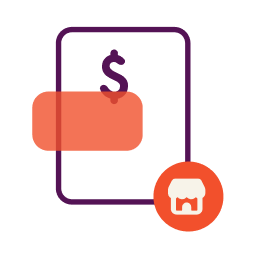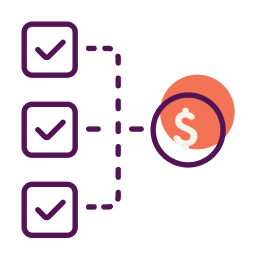More and more, entrepreneurs understand the importance of building strong business credit. Good business credit is a valuable asset that can help open up new financing and business opportunities, and save business owners money when they borrow.
Would you like to help your customers or clients enjoy those advantages? You can, if you start reporting payment history to commercial credit reporting agencies. Many small business owners extend payment terms to their clients, or provide goods or services before getting paid. If you’re one of them, you may be able to report those customer payment records so they appear on commercial credit reports. (Business credit reports are available for anyone to check — manage yours using Nav Prime.)
But why would you want to go to that effort? Here are four reasons.
Encourage Good Behavior
Let’s face it— when money is tight most of us prioritize bills that will affect our credit over those that don’t. Why should businesses be any different? When you let your customers know you report you are subtly encouraging them to move your invoice to the top of the pile. One commercial credit bureau even provides free stickers you can put on invoices to remind customers that their payments will be part of their credit record.
Help Your Customers Build Business Credit
By reporting those payments to commercial credit agencies you can help your clients build positive business credit references that help them build strong business credit scores. Your customers’ good payment histories will be reflected in their credit scores. (Nav customers can use the free Business Lookup tool to check your client’s business credit data.) Not all companies report to these agencies, and as business owners learn about the importance of establishing strong business credit, they often seek out and do business with companies that report.
Make Better Decisions
When you work with a commercial credit reporting agency to report data, you can also enlist its help to improve your data and decisions. The credit reporting agency can help you understand historic data and trends, and develop predictive scoring, explains Gail Beltz, director, Trade Acquisition for Experian Business Information Services.
Help Other Entrepreneurs Avoid Slow Pays
The more data credit reporting agencies collect, the better they can help other businesses’ manage and predict risk. More data = better decisions. Other business owners can check business credit and offer credit to businesses with a track record of paying on time, as well as avoid doing business with companies that are overextended or falling behind on their bills. Found out how to open a business credit file here.
It’s worth noting that commercial credit reports don’t include information about the names of creditors that share information. Instead, it is categorized by the type of lender or vendor.
Intrigued? Here are two ways to get started reporting your business partners’ account histories to business credit reporting agencies.
How to Report to Dun & Bradstreet
Dun & Bradstreet offers several commercial credit report and score products, but it’s best known for its Paydex score. It has more than 12,000 trade partners around the world contributing more than 1.5 billion updates to trade information each year.
To get started reporting, you can contact your Dun & Bradstreet Relationship Manager, visit D&B’s website or call D&B at 844-201-9144.
Generally, you can report to Dun & Bradstreet if you become part of its Trade Exchange Program. There is no cost to report. You must have at least 300 active credit customers, or be a member of its DNBi or PPP service. You may be able to connect your Quickbooks account to make reporting easier.
As a bonus, you’ll get stickers you can put on your invoices that note you report to Dun & Bradstreet. They may give your customers the “nudge” they need to pay on time.
Learn more about Which Credit Cards Can Help You Build Business Credit.
How to Report to Experian
Experian is a global technology company and market leader in business data and analytics. They have a comprehensive commercial database of third-party verified data of business entities to support business credit. Companies reporting to Experian can benefit their community as well support collection efforts.
Experian does not charge for reporting but there are some requirements including but not limited to reporting a full portfolio monthly. Contact Experian at bisdatareporting@experian.com about becoming a reporting partner.
How to Report to Creditsafe
Creditsafe is an international commercial credit reporting agency with files on more than 365 million businesses worldwide. There are two ways to add trade payment data to Creditsafe:
If your business wants to report information on your client’s payment histories, you can join Creditsafe’s Trade Exchange program. To take advantage of this free program, you will claim your business on their website and then authenticate through one of many commonly used accounting tools, such as QuickBooks, Freshbooks or Xero. With most accounting tools, this will automatically submit relevant tradelines, removing the need for manually submitting them each month. Note: Creditsafe has a manual option for adding tradelines that is not self-service, although fees may apply to that service.
If you are a business owner looking to add accounts you pay on a regular basis to your own Creditsafe business credit report, you can take advantage of Creditsafe’s free Stay Safe program. This will allow you to add tradelines to your business credit reports. You’ll also get access to free business credit monitoring along with other benefits.
Can’t Report? Try This
Some business owners want to report their clients or customers that aren’t paying their bills. If your business is unable to report customer information as described above, another option is to hire a debt collector. The collection agency may have a relationship with credit reporting agencies that allows it to report those debts.
Related Resources:
Small Business Financial Exchange
UCC Filings and Business Credit Scores
This article was originally written on August 24, 2017 and updated on June 10, 2024.




having mechanic shop, I sold cars to customers and I’d like to report to credit Bureau, how can i do it?
If you are talking about reporting individual consumer customers you’ll probably find that to be too difficult and expensive. If you work with a collection agency, it may report. If your customers are businesses, then you can learn about how to report them here.
How do I report a customer’s late payments on their three credit reports?
I am a small business owner, and a customer and the company they reporesent have ignored invoices and a demand letter from my attorney demanding payment?
Luisa, You may want to hire a debt collector that reports. Going forward, you can contact the credit reporting agencies as described in this article to report accounts but you will likely need to report all accounts (not just one or two). The credit bureaus aren’t meant to be a substitute for debt collection.
This is awesome information. Thank you Gerri. I definitely want to offer this business credit reporting opportunity to my membership clients/students. In the article it stated that I need about 300 clients in order to report for free. How much is it reporting fee for less than 300?
Josette – I am glad you found it helpful. I’d encourage you to reach out to the credit reporting agencies directly with your question. They can help you understand what you need to do to get started.
Good afternoon! I have found information regarding reporting client payments to the business credit bureaus, but how does the client request a vendor to report them to a business credit bureau?
We’re looking to improve our credit score and would like to ask our vendors to rate us appropriately. Is there a guideline of sorts I can follow?
Thank you!
Misty – the best advice I can give is to share this information with them. It’s not typical to supply individual reports on just one client. Instead they usually need to get set up to supply accounts on a regular basis and whether they will do that depends on the vendor. As a business owner you can take advantage of Creditsafe’s free Stay Safe program mentioned in this article. In addition, D&B offers paid products where they will verify individual accounts but there is a fee for that service.
I had a small business and would like to report good and bad credit for my customers need help
Hi Coretta – That’s great! You’ll need to reach out to each of the credit bureaus in this article directly. I hope the information we have provided is useful for doing that.
I would like to report information for a person that we have held a mortgage for for about 10 years. He has consistently paid his mortgage on time. Please tell me how.
Short answer is you can’t. Credit reporting agencies have extensive requirements for companies that report consumer information in order to help ensure they (and the companies that report) comply with federal and state laws. An individual is not going to be able to meet those requirements. Your borrower may want to check into a service like eCredable which can verify these types of payments for reporting as alternative data. (It can add up to two years of payments, not ten though.)